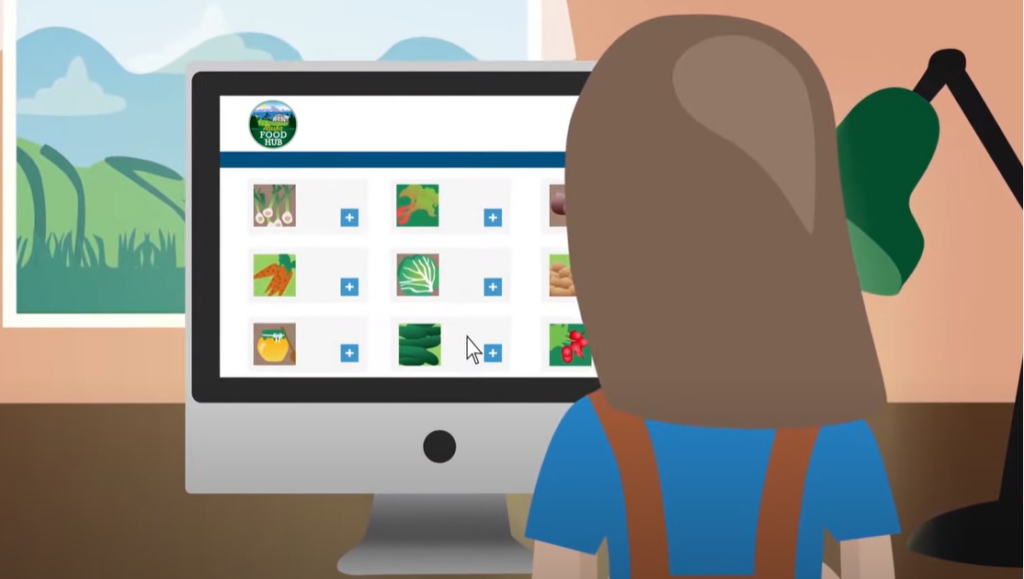Online Platforms & Software Considerations:
There are many options for marketplace/ sales platform software, including:
Local Food Marketplace is the food hub software that most Alaskan Food Hubs use for many reasons:
- The support team is responsive
- Commitment to the idea of food hubs and have experience operating them
- Always updating the software to fix bugs and add new features
- Offer several add-on features, like route planning
- Offer generous terms for trialing software
- System is scalable and contractable
There are several other specialized software options designed specifically for managing food hub operations, including:
- Barn2Door: Barn2Door offers a platform for farmers and food producers to sell directly to customers, including features for online ordering, inventory management, and customer relationship management. It also provides tools for marketing, analytics, and reporting.
- FoodHub: FoodHub is a platform that connects buyers and sellers in the local food supply chain, including farmers, producers, distributors, and buyers such as restaurants, retailers, and institutions. It offers features for sourcing, ordering, and logistics management, as well as tools for communication and collaboration.
- Harvie: Harvie is a software platform designed to support community-supported agriculture (CSA) programs and farm-to-table subscription services. It provides tools for managing memberships, customizing box contents, coordinating deliveries, and tracking customer preferences.
- Open Food Network: Open Food Network is an open-source platform that enables food producers and distributors to sell their products online and connect with customers. It offers features for managing orders, inventory, payments, and delivery logistics, as well as tools for building and managing online storefronts.
- Local Orbit: Local Orbit provides software solutions for food hubs, distributors, and local food networks. It offers features for managing procurement, inventory, sales, and logistics, and tools for communication, collaboration, and reporting.
- Farmigo: Farmigo offers a platform for farmers, food producers, and food hubs to sell directly to customers through online marketplaces, subscription services, and community-supported agriculture (CSA) programs. It provides tools for managing orders, inventory, deliveries, and customer relationships.
These are just a few examples of specialized software options for food hubs and local food systems. When evaluating software for your food hub, consider factors such as your specific needs, budget, scalability, and integration capabilities with existing systems. It’s also important to assess the ease of use, customer support, and security features of the software provider.
Financial Tracking & Payments
It is highly recommended that you utilize financial services websites to streamline your bookkeeping. The main websites used by food hubs to help manage their finances, run payroll, and pay out vendors include:
- QuickBooks
- Bookkeeping.com
- Bill.com
This may require hiring a bookkeeper to audit your books every month. While it is fine for the food hub manager to help manage the producer and customer accounts daily, it’s a best financial and accounting practice to have a separate bookkeeper or accountant check over your numbers and report each month on your profits and losses. This set of recommendations may seem like a lot at first but it is one of the guaranteed ways to save you time and money in time in the long run.
